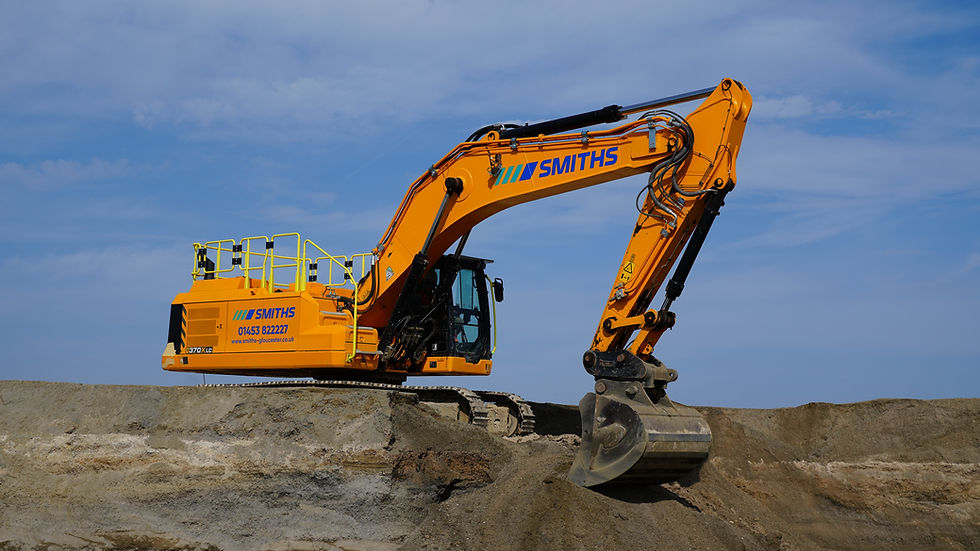Another rough quarter for construction
- Demolition Hub

- Apr 16, 2024
- 4 min read

Today, Glenigan, one of the construction industry’s leading insight and intelligence experts, releases the April 2024 edition of its Construction Review.
Project-starts fell by nearly a third (-28%) against the year before
Main contract awards were down 32% on the same time a year ago
Detailed planning approvals decreased 18% against the preceding quarter, standing flat against 2023 levels
Residential construction-starts dropped 27% on both the preceding three-months and last year
The Review focuses on the three months to the end of March 2024, covering all major (>£100m) and underlying (<£100m) projects, with all underlying figures seasonally adjusted.
It’s a report which provides a detailed and comprehensive analysis of year-on-year construction data, giving built environment professionals a unique insight into sector performance over the last 12 months.
The April Review highlights consistently weak construction-start performance over Q.1 2024, as the industry navigates its way through a persistent economic downturn.
Averaging £7,215 million per month, work commencing on-site fell 3% against the preceding three months, to finish 28% lower than the same time last year. This can be attributed to significant decreases in both major and underlying works commencing on site.
Major project-starts fell 26% against the preceding three months and declined by 41% compared with the previous year. It was an equally gloomy outlook for underlying work, dropping 22% during Q.1 to stand 21% down on the previous year.
Main contract awards also stalled, remaining flat during the three months to March and 32% down on 2023 figures.
Detailed planning approvals also failed to increase, falling back 18% against the preceding quarter with no movement either way compared to last year.

Commenting on the figures, Glenigan’s Economic Director, Allan Wilen says, “Sluggish performance in Q.1 2024 is unsurprising as economic uncertainty continues to deter private sector investment. However, there are some small glimmers of hope to be found within some verticals, which experienced modest growth during the Review period. Particularly education, health and community & amenity. This indicates a small boost in the public sector pipeline however, with a General Election approaching, any short-term improvement needs to be considered with a degree of cautious optimism.”
The sector-specific and regional index follows. Measuring underlying project performance, it paints an overall picture of decline across most sector verticals.
Sector Analysis – Residential
Residential starts-on-site fell during Q.1, dropping 27% in the three months to the end of March, standing 27% lower than a year ago.
Private housing was also down 22% on the preceding three months, with performance weakened by 24% compared with the previous year.
Social housing also posted poor results, with work commencing on-site falling 43% against the preceding three months and plummeting by 40% against last year’s figures.
Sector Analysis – Non-Residential
Performance in non-residential sectors was mixed.
Community & amenity project-starts experienced an impressive growth period, increasing by 36% against the previous three months to stand 19% up on a year ago. A boost to the vertical was partially delivered by a £79 million prison extension project in Shaftsbury, Dorset. It was the only vertical to experience growth against both periods.
Health starts experienced a fall of 13% against the preceding three months, but advanced 26% on the same period last year. Similarly, retail project-starts declined 13% during Q.1 but enjoyed a modest 1% lift against the previous year.
Vice-versa, education was up 3% compared with the last quarter but down 17% on a year ago.
Industrial project-start performance was poor, with project-starts weakening 15% during Q.1 to stand 22% lower than a year ago. It was a similar story for hotel & leisure, with the value of project-starts falling back 19% against the preceding three months and 15% against the previous year. Likewise for offices, where the value of underlying project-starts fell back 22% during Q.1 to stand 23% down on a year ago.
Civil works fared particularly poorly, with the value of project-starts declining 34% against the preceding three months, to stand 26% lower than a year ago. A significant driver for the decline was poor performance in infrastructure, which remained 42% behind 2023 levels, with work starting on-site also slipping back 43% against the last quarter. However, on a more positive note, utility starts experienced a slight uptick against 2023, growing 2% despite falling back 21% against the preceding three months.

Regional Performance
Northern Ireland was the strongest-performing region in the UK, with project-starts increasing 44% against the preceding quarter, to stand 28% up on this time last year. Here, growth was accelerated by the £44 million development of the Hamilton Dock Hotel in Belfast.
The outlook for the East of England was also sunny. It was the only other region to experience growth against both periods, up 13% on the preceding three months, as well as 25% on the previous year. Growth in the region was supported by the commencement of a £74 million 246-unit residential development in Maldon, Essex.
London experienced a 23% decrease against the preceding three months and remained 18% down against the previous year.
The West Midlands experienced particularly poor performance, with the value of project-starts falling 56% against the preceding three months and by 45% compared with the same time last year. This was the steepest decline of any region.
Work starting on site in the East Midlands (-49%), Wales (-33%), and Scotland (-25%) all remained distinctly behind 2023 figures.
Every other region of the UK experienced a weakening in project-starts against both the previous quarter and the year before.
.png)



